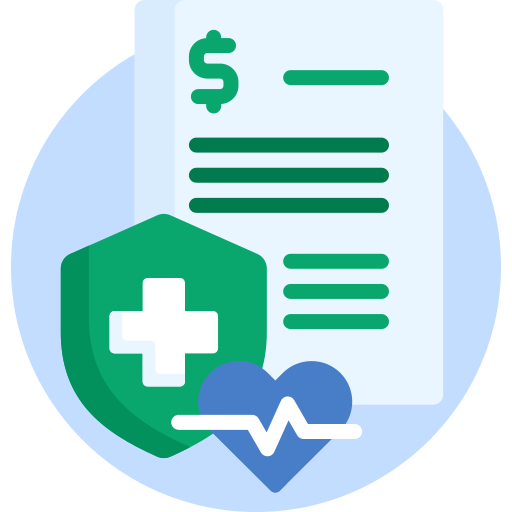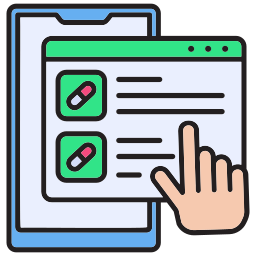Interoperable healthcare includes the seamless exchange of patient information across different healthcare systems and providers. This capability ensures that all healthcare stakeholders, from primary care physicians to specialists, have access to accurate and up-to-date patient data.
According to a study by the Office of the National Coordinator for Health Information Technology (ONC), 96% of hospitals and 78% of office-based physicians in the United States use certified EHR systems, underscoring the widespread adoption of interoperable systems. This integration allows for a more detailed view of a patient's health, improving the accuracy of diagnoses and the effectiveness of treatment plans.
Patient experience is important in healthcare, as it directly impacts patient satisfaction, adherence to treatment plans, and overall health outcomes. Interoperable healthcare systems significantly enhance the patient experience by providing patients and their caregivers with comprehensive access to their health data.
This accessibility empowers patients to make informed decisions about their health, facilitates better communication with healthcare providers, and ensures coordinated care across different medical disciplines, ultimately leading to improved health outcomes and patient satisfaction.
Here are seven benefits of interoperable healthcare data that can be beneficial for patients:

7 Benefits of Interoperable Healthcare Data for Patients
✅ Holistic View of Health Data
A holistic view of health data means patients have access to a comprehensive picture of their medical history, which includes records from various healthcare providers. This level of detail enables patients to see data from multiple sources, such as primary care physicians, specialists, and hospitals, all in one place. Interoperable healthcare systems facilitate this by allowing different EHR systems to communicate and share information seamlessly, ensuring patients and their healthcare providers have the most accurate and complete data for informed decision-making.
✅ Better-Informed Decisions
Patients who get comprehensive health information from interoperable healthcare systems are empowered to make more educated decisions regarding their care. When patients access their complete medical records, they can understand their health conditions more thoroughly and discuss treatment options with their providers more effectively.
For example, a patient with chronic conditions can monitor their health trends over time, leading to more accurate adjustments in medication or lifestyle. Similarly, access to comprehensive data helps patients seek second opinions, compare treatment plans, and choose the best possible care path. This informed decision-making ultimately leads to improved health outcomes and patient satisfaction.
✅ Improved Care Coordination
Care coordination involves organizing patient care activities and sharing information among all participants concerned with a patient's care to achieve safer and more effective care. Interoperable healthcare ensures different healthcare providers are well-informed about a patient’s history, treatments, and ongoing care plans.
Whether a patient visits a primary care physician, specialist, or hospital, each provider has access to the same comprehensive health data. This seamless flow of information leads to more cohesive and effective treatment plans, reducing the risk of redundant tests, medication errors, and conflicting treatments. Ultimately, improved care coordination enhances patient safety, leading to better health outcomes.
✅ Enhanced Patient Engagement
Interoperable healthcare significantly boosts patient engagement by increasing patient involvement in their care. When patients access their complete medical records and health information from multiple providers, they are more informed and can actively participate in their treatment plans. This active participation leads to better adherence to treatments and improved health outcomes.
Tools and apps that facilitate patient engagement, such as patient portals and mobile health apps, allow patients to view test results, schedule appointments, and communicate with their healthcare providers. These technologies, underpinned by interoperable healthcare data, empower patients to manage their health proactively.
✅ Reduction of Medical Errors
By avoiding data input errors and guaranteeing correct information sharing between systems, interoperable healthcare is crucial in decreasing medical errors. When healthcare providers have access to consistent and up-to-date patient data, the likelihood of errors due to manual data entry significantly decreases. Interoperability also helps prevent unnecessary tests and procedures, as providers can access previous test results and medical histories easily.
For example, it has been demonstrated that interoperable data lowers the number of redundant tests and unfavorable drug interactions, resulting in safer and more effective patient treatment. Hospitals that have merged with interoperable healthcare systems to increase patient safety and reduce prescription mistakes are real-world examples.
Plus, smooth data transfer between various healthcare providers has made it possible to give patients with more timely and well-coordinated care, which has improved patient outcomes overall and decreased hospital readmissions. These advancements highlight how important interoperability is to raising the standard and effectiveness of healthcare.
✅ Streamlined Emergency Care
Interoperable healthcare systems are critical in emergency care settings, where quick access to comprehensive patient data can be life-saving. In emergencies, interoperability allows emergency responders and ER doctors to access vital patient information instantly, such as medical history, allergies, and current medications. This immediate access enables healthcare providers to make more informed decisions faster, improving patient outcomes.
For instance, interoperable data has been shown to reduce duplicate tests and adverse drug interactions, leading to safer and more efficient patient care. Real-life examples include hospitals like Mayo Clinic and Cleveland Clinic, which have integrated interoperable healthcare systems, significantly decreasing medication errors and enhancing patient safety. Additionally, Kaiser Permanente's adoption of interoperable systems has facilitated quicker diagnosis and treatment planning, reducing the time to initiate life-saving interventions.
✅ Personalized Treatment Plans
Because they allow healthcare clinicians to access extensive patient data from several sources, interoperable healthcare systems are essential for developing individualized treatment strategies. This data includes medical history, test results, and treatment outcomes, all accessible in real-time. With interoperable data, healthcare professionals can tailor treatments to meet the specific needs of each patient, optimizing therapeutic effectiveness and minimizing adverse effects.
For instance, oncologists at institutions like MD Anderson Cancer Center use interoperable data to customize cancer treatment regimens based on genetic profiles and previous therapy responses. This approach has led to improved patient survival rates and quality of life by allowing for highly personalized treatment plans. Similarly, at Memorial Sloan Kettering Cancer Center, integrated systems enable the analysis of patient data from various sources, ensuring that treatments are effective and aligned with each patient’s specific health goals and preferences. This personalized approach exemplifies how interoperability can significantly enhance patient care and outcomes.
How HealthConnect CoPilot Enhances Interoperable Healthcare Data for Patients
Interoperable healthcare data offers significant benefits for patients by ensuring that their medical information is easily accessible and consistent across different healthcare providers. This seamless exchange of data reduces the likelihood of duplicate tests, minimizes medication errors, and facilitates faster, more accurate diagnoses.
As a result, patients experience safer and more efficient care with treatments tailored to their unique health profiles and histories, ultimately leading to improved health outcomes and a more personalized healthcare experience.
HealthConnect CoPilot facilitates seamless access to integrated healthcare data, ensuring patients have a comprehensive view of their medical information across different providers. Interoperability enhances patient engagement, enables personalized treatment plans, and improves care coordination.
By using advanced integration solutions, HealthConnect CoPilot allows healthcare providers to deliver more informed and efficient care, ultimately leading to better patient outcomes.
- What is the definition of interoperability?
Interoperability refers to the ability of different systems, devices, or applications to connect and exchange information efficiently and effectively. It ensures that data can be shared and used across various platforms without compatibility issues.
- What is interoperability in healthcare?
Interoperability in healthcare means that various healthcare systems and providers can exchange and interpret patient data seamlessly. This includes EHRs, labs, pharmacies, and other healthcare entities working together to provide a holistic view of a patient’s health.
- Why is interoperability important in healthcare?
Interoperability is crucial in healthcare because it enables better coordination among healthcare providers, improves patient care, reduces errors, and enhances the efficiency of healthcare delivery. It ensures that accurate and comprehensive patient information is available when and where it is needed.
- What are the benefits of interoperability in healthcare?
The benefits of interoperability in healthcare include improved patient outcomes, more informed decision-making, reduced medical errors, enhanced care coordination, and increased operational efficiency. It also leads to cost savings by eliminating redundant tests and procedures.

Pravin Uttarwar, CTO of Mindbowser
As the CTO of Mindbowser, a healthcare-focused software development company, I am dedicated to delivering cutting-edge digital solutions that transform patient care and operational efficiency. With over 16 years of experience and as an MIT alumnus, I specialize in healthcare interoperability, FHIR-compliant systems, and AI-powered platforms, crafting scalable products and architectures tailored to the unique needs of healthcare providers and enterprises.
I have spearheaded the development of over 100 products and platforms, guiding them from concept to full-fledged solutions. My expertise extends to scaling remote tech teams, driving EHR integrations, and building secure, cloud-native healthcare solutions. By shaping technology visions and roadmaps, I help clients achieve long-term growth and success in the rapidly evolving healthcare landscape.
HealthConnect CoPilot enabled us to access real-time patient health data through integration with Apple HealthKit, enhancing care delivery while maintaining HIPAA compliance. This led to personalized care and improved outcomes for patients.

AI-enhanced Obstetrics Clinical Decision Support Platform
HealthConnect CoPilot's integration with Epic's Hyperspace has transformed our workflow. Automated post-delivery examinations and HL7 protocol use ensure accurate updates to Epic. Their expertise empowers informed decision-making in childbirth

Top Provider for Customized Healthcare Solutions
HealthConnect CoPilot's helped us to integrate with leading tracking devices such as Apple Watches and Fitbit. This integration enables effortless syncing of health data, providing users with real-time insights displayed directly on our flagship products: smart mirrors and digital calendars.

A Provider of Customizable Display Solutions
Post a comment Cancel reply
Related Posts
Model Context Protocol (MCP): Revolutionizing Healthcare Chatbots with FHIR Integration
Healthcare technology is experiencing a paradigm shift with the emergence of Anthropic’s Model Context Protocol…
Healthcare Integration: The Understanding & Its Impact in Healthcare
Healthcare integration refers to connecting various systems, applications, and data sources within the healthcare ecosystem…
Value-based Care vs Fee-for-Service
Healthcare payment systems can feel a bit like deciding between paying for each item on…
Checklist for EHR Integration in the Healthcare System
EHR integration in the healthcare system refers to the seamless connection of EHR systems with…
Integrating FHIR and Genomics: How AI is Shaping the Future of Medicine
AI is transforming the way medicine approaches personalized healthcare, particularly through genomics. By analyzing vast…
The Road to Value-based Healthcare: How Interoperability Paves the Way
Interoperability in healthcare refers to the ability of different health information systems to exchange, interpret,…








